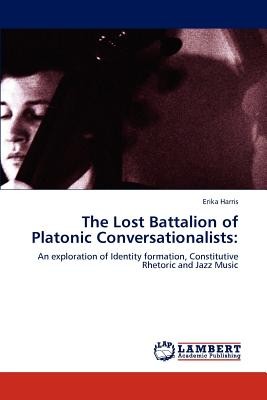
- We will send in 10–14 business days.
- Author: Erika Harris
- Publisher: LAP Lambert Academic Publishing
- ISBN-10: 3847305948
- ISBN-13: 9783847305941
- Format: 15.2 x 22.9 x 0.3 cm, softcover
- Language: English
- SAVE -10% with code: EXTRA
Reviews
Description
I argue that rhetorically, music functions constitutively, rather than merely persuasively as previous scholars suggest. The following analysis of five separate jazz songs from the Harlem Renaissance period elaborates the process by which musical lyrics constitute qualities already apparent in their audience members, structure visible cultural identifiers that prompt collective identities, and form sub-cultures. This analysis employs Maurice Charland's (1987) work on Constitutive Rhetoric to examine the collective bohemianism that emerged from the Harlem Renaissance as an identifiable sub-culture, as well as Kenneth Burke's (1969) methodological approach to identification.
EXTRA 10 % discount with code: EXTRA
The promotion ends in 19d.21:25:31
The discount code is valid when purchasing from 10 €. Discounts do not stack.
- Author: Erika Harris
- Publisher: LAP Lambert Academic Publishing
- ISBN-10: 3847305948
- ISBN-13: 9783847305941
- Format: 15.2 x 22.9 x 0.3 cm, softcover
- Language: English English
I argue that rhetorically, music functions constitutively, rather than merely persuasively as previous scholars suggest. The following analysis of five separate jazz songs from the Harlem Renaissance period elaborates the process by which musical lyrics constitute qualities already apparent in their audience members, structure visible cultural identifiers that prompt collective identities, and form sub-cultures. This analysis employs Maurice Charland's (1987) work on Constitutive Rhetoric to examine the collective bohemianism that emerged from the Harlem Renaissance as an identifiable sub-culture, as well as Kenneth Burke's (1969) methodological approach to identification.


Reviews